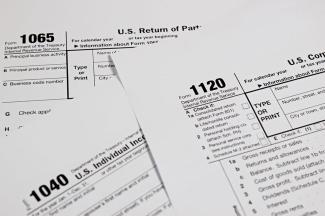Internal Control Auditor: Ensuring Compliance and Identifying Areas for Improvement
In today's business landscape, ensuring compliance with laws and regulations is critical to maintaining the reputation and viability of an organization. Internal control auditors play a vital role in this effort by conducting independent evaluations of an organization's internal controls and processes to ensure compliance and identify areas for improvement. In this blog, we will discuss the role of internal control auditors and the importance of their work.
What is an Internal Control Auditor?
An internal control auditor is a professional who is responsible for evaluating an organization's internal controls and processes to ensure that they comply with laws and regulations, and to identify areas for improvement. This evaluation can include a variety of areas, such as financial reporting, IT systems, and operational processes. The goal of the audit is to identify any weaknesses in the internal controls and processes and to make recommendations for improvement.
Internal control auditors are typically employed by accounting firms or consultancies, but they can also work in-house for large organizations. They must have a strong understanding of the relevant laws and regulations, as well as a thorough knowledge of accounting and auditing principles. They also need excellent analytical and communication skills, as they must be able to identify and communicate potential issues and recommendations clearly and effectively.
Why are Internal Control Auditors Important?
Internal control auditors play a critical role in ensuring that organizations comply with laws and regulations. By conducting independent evaluations of an organization's internal controls and processes, they can identify potential issues before they become major problems. This can help organizations avoid costly fines and legal fees, as well as damage to their reputation.
Internal control auditors can also help organizations improve their internal processes and controls. By identifying areas for improvement, they can help organizations streamline their operations, reduce costs, and improve efficiency. This can result in significant benefits for the organization, including increased profitability and a more productive workforce.
Finally, internal control auditors can provide assurance to stakeholders, including investors and regulators, that the organization is operating in compliance with laws and regulations. This can help build trust and confidence in the organization, which can have positive impacts on its financial performance and long-term success.
Conclusion
In conclusion, internal control auditors play a critical role in ensuring that organizations comply with laws and regulations, identifying areas for improvement, and providing assurance to stakeholders. Their work is essential to maintaining the reputation and viability of organizations, and their expertise can provide significant benefits to the organizations they serve. As the business landscape continues to evolve, the role of internal control auditors will remain essential in helping organizations adapt to new challenges and opportunities.



